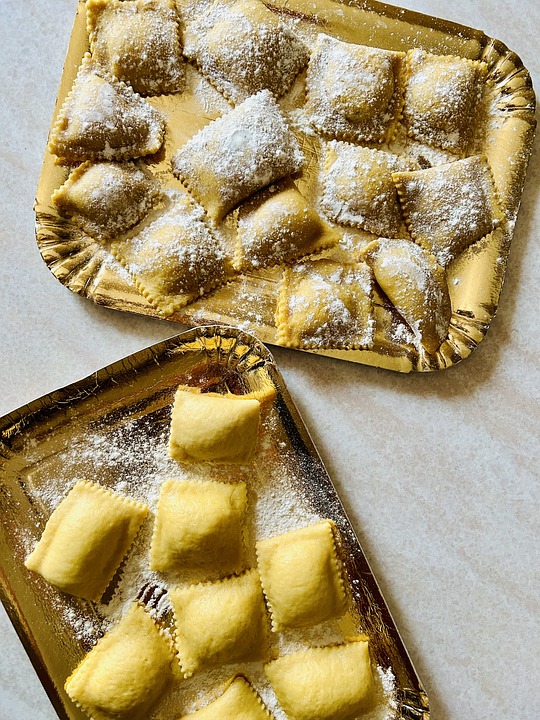Keto Baking Made Easy: Swap Out Traditional Flour for These Low-Carb Options
For those following a ketogenic diet, finding ways to satisfy cravings for baked goods can be a challenge. Traditional baking often relies heavily on carbohydrates, especially flour, which is off-limits for those looking to minimize their carb intake. However, with a bit of creativity and the right ingredients, keto baking can be both easy and delicious. Here’s a guide to some fantastic low-carb flour alternatives that will help you create keto-friendly treats without sacrificing flavor or texture.
The Keto Diet: A Brief Overview
The ketogenic diet is a high-fat, moderate-protein, and very low-carb eating plan designed to induce a state of ketosis in the body. In ketosis, the body becomes efficient at burning fat for fuel instead of relying on carbohydrates. While this dietary approach can lead to significant weight loss and improved health markers for many, it can also mean giving up some beloved foods, particularly baked goods. But fear not—keto baking can be a delightful endeavor with the right substitutes.
Low-Carb Flour Alternatives
1. Almond Flour
Almond flour is a popular choice in the keto baking community. Made from finely ground almonds, it is low in carbs and high in healthy fats. It offers a nutty flavor and moist texture, making it ideal for cookies, muffins, and pancakes. On a 1:1 ratio, almond flour can be used in place of traditional flour, though it may require slightly more liquid in recipes due to its higher fat content.
2. Coconut Flour
Coconut flour is another excellent option for keto baking. With a higher fiber content, it is extremely absorbent, so a smaller amount is needed. Generally, you should use about one-fourth the amount of coconut flour compared to traditional flour and increase the liquid in your recipes to prevent dryness. Coconut flour imparts a mild sweetness, making it perfect for baked goods like brownies and cakes.
3. Flaxseed Meal
Flaxseed meal provides a rich, nutty flavor and is packed with omega-3 fatty acids. It can be used in combination with almond or coconut flour to enhance both nutritional value and taste. Flaxseed meal also works well as an egg substitute in vegan baking; simply mix one tablespoon of flaxseed meal with three tablespoons of water and let it sit until it becomes gel-like.
4. Psyllium Husk Powder
Psyllium husk powder is a game-changer in keto baking. It adds fiber, which aids digestion, and mimics the elasticity of gluten, yielding a texture closer to traditional bread. It’s particularly effective for making bread, pizza crusts, and other baked goods that require structure. Use approximately one tablespoon of psyllium husk powder for every cup of flour in your recipe.
5. Chia Seed Flour
Chia seeds, when ground into flour, can be a nutritious addition to your keto baking arsenal. They contain a good amount of protein, fiber, and essential fatty acids. Chia flour works well in combination with other low-carb flours, lending a slight crunch to cookies and an airy texture to muffins. Similar to flaxseed meal, chia flour can be used to help with egg replacement—use three tablespoons of water for each tablespoon of chia seed flour.
6. Sunflower Seed Flour
For those with nut allergies, sunflower seed flour is a fantastic alternative to almond flour. It has a mild flavor and can be used in a 1:1 ratio with traditional flour, though you may need to make minor adjustments based on the recipe. Sunflower seed flour can produce beautifully moist cakes and muffins.
Tips for Successful Keto Baking
- Experiment and Adjust: Not all low-carb flours behave the same way in baking. Don’t hesitate to experiment with different combinations to see which ones yield your desired texture and flavor.
- Pay Attention to Ratios: Be mindful of the suggested ratios when swapping flours, especially with coconut flour due to its high absorbency. Adjust liquid ingredients accordingly.
- Embrace the Sweetener: Replace traditional sugar with keto-friendly sweeteners such as erythritol, monk fruit, or stevia. These alternatives can help maintain the sweetness without the carb load.
- Don’t Overlook Binders: When using low-carb flours, you may need to add eggs or other binders to help hold your baked goods together.
Conclusion
Keto baking opens up a world of delicious possibilities without the guilt of added carbohydrates. By swapping out traditional flour for low-carb options like almond flour, coconut flour, flaxseed meal, psyllium husk powder, chia seed flour, or sunflower seed flour, you can create mouthwatering treats that fit perfectly within your ketogenic lifestyle. So grab your mixing bowls, experiment with these alternatives, and enjoy the delightful art of keto baking!
